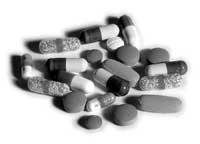Influence of the placebos
Despite being intrinsically ineffective substances, placebos are considered to benefit the patient in many cases. However, scientists still do not know how and why.

Now, a group of psychiatrists at the University of California has analyzed the brain activity of 51 depressive patients. Although the patients were not aware, some were given antidepressant medications, others were given pleasure. In nine weeks, 38% of the first group and 53% of the second group showed an improvement.
However, when analyzing the brain activity of the patients through electroencephalograms, they were surprised that those who claim to feel better thanks to the placebos had less activity than before in the prefrontal cortex, that is, they had the same consequences as those cured with drugs. If, as it seems, the influence of the placebos can be demonstrated, new avenues of investigation will be opened.





